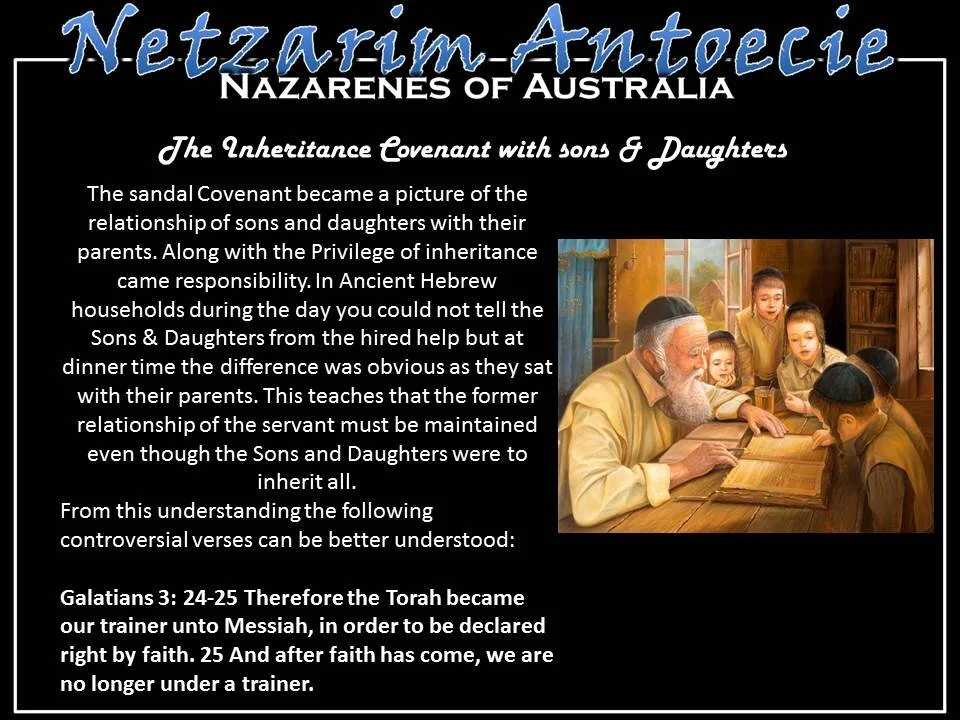Introduction
Since the World in General or the Christian World has approached Scripture in a purely Babylonian- Roman- Greek perspective so typical of most Bible Students who without question use a system of “Greek hermeneutics,” much misunderstanding has occurred.
Also since converted Greek Philosophers had developed assumptions based on their methods of working on Mythological texts they applied them to the Hebrew texts of the Tanak (Old Testament) & the Brit Chadashah (New Testament) with the false assumption that 75% was creative imagination and only 25% truth giving them much room to interject with their own Bias.
Hebrew Hermeneutics requires the interpreter to agree to a moral standard of unbiased translation. This is the result of recognizing that Scripture is 100% true, exactly as written & operates on all four levels simultaneously such as:
1. P’shat- direct.
2. Remez- hinting.
3. Darash-comparison.
4. Sod- deep or hidden.
As Netzarim we may have the tenancy to use our own sources to witness about the truths we have discovered while the best proofs when dealing for example with Christians is by far highly respected Christian writers so that is what I will do.
We know that there is a great need to understand the Hebrew Culture, context and language
when dealing with Scripture but the above quote I found by David Bivin & Roy Blizzard Jr PhD was best from their Book “Understanding the Difficult Words of Jesus.”
With this in mind we will begin to look at various aspects of Scripture that will help us in our understanding and in our defence of the truth that we know to be true. The first and the most highly important subject is that of Covenant or as we will see Covenants in the plural when it comes to Scripture since Covenant could be seen as the overarching theme of all Scripture.
Sadly it was Greek philosophers who translated scriptures conveying that the Old was superseded by the New. Whether that was part of a plan to see a totally new belief system emerge is not the question here but understanding how confusion could arise is!
The Truth that Yahshua is teaching is that to be a good servant is to go far beyond what is expected. Yoseph demonstrated that sort of attitude when he served his master Potiphar prospering him greatly knowing that his true master was YAHWEH.
It’s worth noting that wine is an acceptable Hebrew alternative for the shedding of blood as it is considered the blood of the Grape.
We see this type of Covenant established with Abraham:
What is interesting is that in Bereshith (Genesis) 12 YAHWEH promises to bless, protect and make Abram great. This echoes promises that a good master would make to a most faithful servant but we notice that it is not until Bereshith (Genesis) 17 when Abram has shown himself to be faithful after separating himself from Lot his nephew that YAHWEH referring to himself as El Shaddai the Almighty changes his name and ratifies the Servant Covenant with Abraham through asking him & his whole household to be circumcised. Directly after that YAHWEH comes to initiate the next level of Covenant being the Friendship Covenant as we just observed. Following this next step of intimacy we see the result of this relationship being the long awaited promised son Yitschaq (Isaac) who would inherit the promise first given to Abraham. What we discover is that the entering into the different Covenant levels leads to increased relationship and increased blessing. It has even been suggested that Lot was rescued from Sodom not just by Abraham interceding for him but more by him responding to the Malakim (Angels) and taking them into his house and entering into the Friendship Covenant to the point of so protecting the Malakim that he offered the men of the City his daughters. This begins to show us how important & deep is this level of Covenant.
Ya’acob (James) 2:23 And the Scripture was fulfilled which says, “Abraham believed Elohim, and it was accounted to him for righteousness.” And he was called the friend of Elohim.
This same teaching is represented in the Parable of the sower where the Word finds no roots because of Worldly attachments something that especially today is very relevant.






















